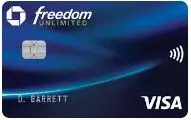How to Make the Most of Your Credit Card Rewards in 2025
Perks are a large reason why we get the credit cards we do, but studies show we don’t use them to their full potential. Here are some tips to maximize credit card rewards.

Profit and prosper with the best of Kiplinger's advice on investing, taxes, retirement, personal finance and much more. Delivered daily. Enter your email in the box and click Sign Me Up.
You are now subscribed
Your newsletter sign-up was successful
Want to add more newsletters?

Delivered daily
Kiplinger Today
Profit and prosper with the best of Kiplinger's advice on investing, taxes, retirement, personal finance and much more delivered daily. Smart money moves start here.

Sent five days a week
Kiplinger A Step Ahead
Get practical help to make better financial decisions in your everyday life, from spending to savings on top deals.

Delivered daily
Kiplinger Closing Bell
Get today's biggest financial and investing headlines delivered to your inbox every day the U.S. stock market is open.

Sent twice a week
Kiplinger Adviser Intel
Financial pros across the country share best practices and fresh tactics to preserve and grow your wealth.

Delivered weekly
Kiplinger Tax Tips
Trim your federal and state tax bills with practical tax-planning and tax-cutting strategies.

Sent twice a week
Kiplinger Retirement Tips
Your twice-a-week guide to planning and enjoying a financially secure and richly rewarding retirement

Sent bimonthly.
Kiplinger Adviser Angle
Insights for advisers, wealth managers and other financial professionals.

Sent twice a week
Kiplinger Investing Weekly
Your twice-a-week roundup of promising stocks, funds, companies and industries you should consider, ones you should avoid, and why.

Sent weekly for six weeks
Kiplinger Invest for Retirement
Your step-by-step six-part series on how to invest for retirement, from devising a successful strategy to exactly which investments to choose.
When we think about the credit cards we have, there’s a reason why we signed up for them. It could be the exceptional cash back or travel rewards offered, or it was a generous low introductory rate that allowed us to get some high-interest debt paid down quicker.
Ultimately, there was an incentive involved that compelled us to action. But are we using those rewards to their full potential? According to a Cardrates.com survey, 83% of people signed up for a credit card because of their rewards. Yet, only 33% of people surveyed used the travel perks offered on their card, despite it being the reason they signed up for the card.

The Chase Freedom Unlimited® card is your concierge to see the world while earning you 5% cash back on travel through Chase.
It shows there’s a gap between why we signed up for the card and getting the most rewards from them. The main cause relates back to communication, where 62% of cardholders surveyed said they would use their rewards more, if notified about them. With that in mind, here are some strategies to be more proactive in keeping that information front of mind.
From just $107.88 $24.99 for Kiplinger Personal Finance
Become a smarter, better informed investor. Subscribe from just $107.88 $24.99, plus get up to 4 Special Issues

Sign up for Kiplinger’s Free Newsletters
Profit and prosper with the best of expert advice on investing, taxes, retirement, personal finance and more - straight to your e-mail.
Profit and prosper with the best of expert advice - straight to your e-mail.
Tips for tracking credit card rewards
- Stay connected: Download the card issuer’s app and review statements, as they contain rewards earned. I also visit my lenders’ websites regularly to see if there are any new promotions or features I might be missing.
- Use a tracking app: Apps like The Points Guy or AwardWallet keep track of card rewards from many lenders.
- Factor rewards into your budget: When I budget, I also pay close attention to my credit cards – not only the balances owed, but my rewards, expiration dates for redemption (if applicable) and redemption limits in my spreadsheet.
- Prioritize cards based on rewards: Most of us carry more than one card, so it’s important to prioritize them based on maximizing rewards. To demonstrate, if you have a card offering 5% cash back on groceries, choose that card when checking out at the grocery store and get 5% cashback.
Foodies delight, as this card earns you four points for every dollar spent at grocery stores and restaurants.
Credit card reward considerations
- Know the fine print: You may have to squint or get a magnifying glass, but pay attention to any asterisks or plus signs in those footnotes of your credit card disclosure statement, as they might contain restrictions.
- Set reminders: For credit cards with quarterly rotating categories, I set a reminder on my phone to check them when they change. From there, I might switch up which card I use based on the rewards offered.
- Hit the intro bonus: When I get a new card, I’ll place regular expenses like utilities or groceries on it until I hit the spending limit to earn the intro bonus.
- Prioritize redemption bonuses: With some cards, we might earn more value by taking the travel perks over cash back redemptions, so pay close attention to the card terms and prioritize rewards based on value and preferences.
- Determine value: In all instances, cash back rewards only make sense when we pay balances off each month. Also pay close attention to the annual fees the card charges and evaluate whether the rewards earned more than the fees.
Earn 90,000 miles after spending $4,000 on eligible purchases within the first six months of opening the account, and receive a free, roundtrip companion certificate every year you renew the card.
The bottom line
Credit card rewards are often the reason why we sign up for a card. That said, studies show there’s a communication gap between the card issuers and their customers on remembering perks. By taking these proactive steps into account, it can help us stay informed about our credit card rewards and ensure we’re maximizing them to their fullest potential.
We may get compensation if you visit partner links on our site. We may not cover every available offer. Our relationship with advertisers may impact how an offer is presented on our website. However, our selection of products is made independently of our relationship to advertisers. The content on this page is accurate as of the posting date; however, some of the offers mentioned may have expired.
Related content
Profit and prosper with the best of Kiplinger's advice on investing, taxes, retirement, personal finance and much more. Delivered daily. Enter your email in the box and click Sign Me Up.

Sean is a veteran personal finance writer, with over 10 years of experience. He's written finance guides on insurance, savings, travel and more for CNET, Bankrate and GOBankingRates.
-
 Quiz: Do You Know How to Avoid the "Medigap Trap?"
Quiz: Do You Know How to Avoid the "Medigap Trap?"Quiz Test your basic knowledge of the "Medigap Trap" in our quick quiz.
-
 5 Top Tax-Efficient Mutual Funds for Smarter Investing
5 Top Tax-Efficient Mutual Funds for Smarter InvestingMutual funds are many things, but "tax-friendly" usually isn't one of them. These are the exceptions.
-
 AI Sparks Existential Crisis for Software Stocks
AI Sparks Existential Crisis for Software StocksThe Kiplinger Letter Fears that SaaS subscription software could be rendered obsolete by artificial intelligence make investors jittery.
-
 One of the Most Powerful Wealth-Building Moves a Woman Can Make: A Midcareer Pivot
One of the Most Powerful Wealth-Building Moves a Woman Can Make: A Midcareer PivotIf it feels like you can't sustain what you're doing for the next 20 years, it's time for an honest look at what's draining you and what energizes you.
-
 I'm a Wealth Adviser Obsessed With Mahjong: Here Are 8 Ways It Can Teach Us How to Manage Our Money
I'm a Wealth Adviser Obsessed With Mahjong: Here Are 8 Ways It Can Teach Us How to Manage Our MoneyThis increasingly popular Chinese game can teach us not only how to help manage our money but also how important it is to connect with other people.
-
 Looking for a Financial Book That Won't Put Your Young Adult to Sleep? This One Makes 'Cents'
Looking for a Financial Book That Won't Put Your Young Adult to Sleep? This One Makes 'Cents'"Wealth Your Way" by Cosmo DeStefano offers a highly accessible guide for young adults and their parents on building wealth through simple, consistent habits.
-
 My Spouse and I Are Saving Money for a Down Payment on a House. Which Savings Account is the Best Way to Reach Our Goal?
My Spouse and I Are Saving Money for a Down Payment on a House. Which Savings Account is the Best Way to Reach Our Goal?Learn how timing matters when it comes to choosing the right account.
-
 We're 78 and Want to Use Our 2026 RMD to Treat Our Kids and Grandkids to a Vacation. How Should We Approach This?
We're 78 and Want to Use Our 2026 RMD to Treat Our Kids and Grandkids to a Vacation. How Should We Approach This?An extended family vacation can be a fun and bonding experience if planned well. Here are tips from travel experts.
-
 My First $1 Million: Retired From Real Estate, 75, San Francisco
My First $1 Million: Retired From Real Estate, 75, San FranciscoEver wonder how someone who's made a million dollars or more did it? Kiplinger's My First $1 Million series uncovers the answers.
-
 To Love, Honor and Make Financial Decisions as Equal Partners
To Love, Honor and Make Financial Decisions as Equal PartnersEnsuring both partners are engaged in financial decisions isn't just about fairness — it's a risk-management strategy that protects against costly crises.
-
 Top 5 Career Lessons From the 2026 Winter Olympics (So Far)
Top 5 Career Lessons From the 2026 Winter Olympics (So Far)Five lessons to learn from the 2026 Winter Olympics for your career and finances.

